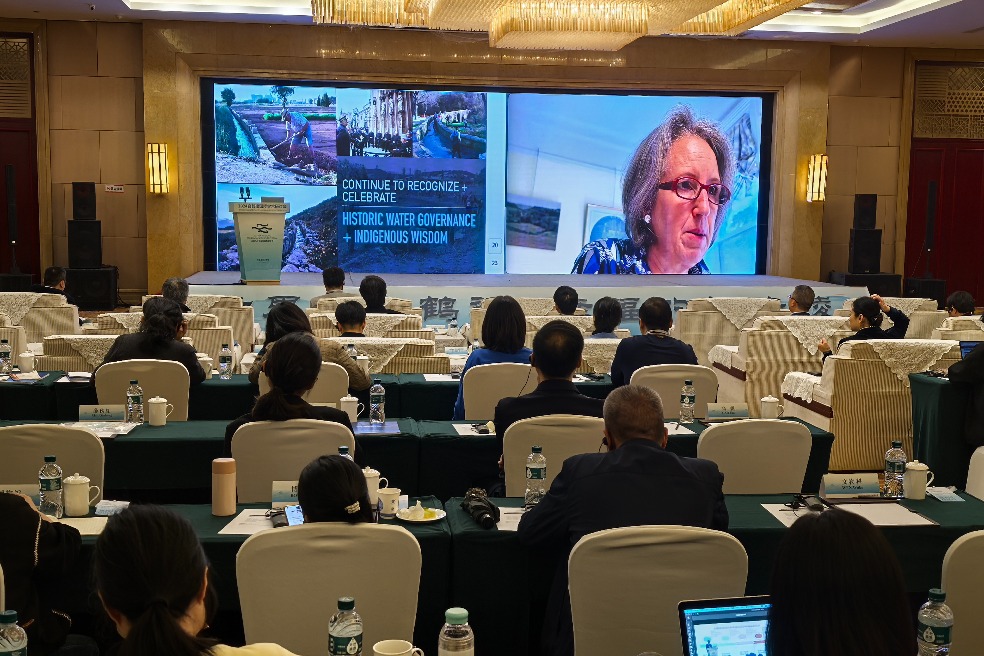Clean oceans key to mitigating carbon

As one of the planet's largest carbon sinks, the protection and restoration of marine ecosystems are effective ways of mitigating carbon emissions and accelerating carbon neutrality, experts and officials agreed during the annual general meeting of the China Council for International Cooperation on Environment and Development.
"Without global action, plastic production is set to almost double by 2040, with severe impacts on the environment and human health," Kristin Halvorsen, CCICED vice-chairperson, said on Friday during a forum at the meeting, pointing to its implications for marine ecosystems.
Dou Shuhua, vice-chairman of the Natural Resource and Environmental Protection Committee of the 13th National People's Congress, detailed China's efforts in marine protection, citing significant improvements in marine ecological environments.
He said that China has enacted and updated a series of laws and regulations related to marine protection, with over 100 guidelines and scientific and technological standards having been issued to support laws and regulations.
By the end of last year, China had completed the rectification of over 16,000 marine sewage outlets, and designated approximately 150,000 square kilometers of marine ecological protection redlines, covering mangroves, seagrass beds and coral reefs. The country has established 352 marine nature reserves, protecting an area of about 93,300 sq km, according to the White Paper on China's Marine Ecological Environment Protection released by the State Council Information Office in July.
"We need to manage the ocean according to the rules and laws," Dou said, highlighting the importance of stringent regulations and public awareness.
Dechen Tsering, regional director for Asia Pacific at the United Nations Environment Programme, agreed, emphasizing the need for comprehensive policies to tackle marine pollution and climate change.
"Ending plastic pollution will address the entire life cycle of plastics. We need to rethink product design for circularity and enhance resource efficiency," she said.
- Clean oceans key to mitigating carbon
- Fujian coast guard fleets patrol waters near islands of Dongyin, Matsu
- BRI to play role in sustainable development push
- Report makes further revelation of conspiracies behind US-hyped 'Volt Typhoon'
- Team, platform help ensure food safety
- Cell therapy gives hope to children with lupus




































